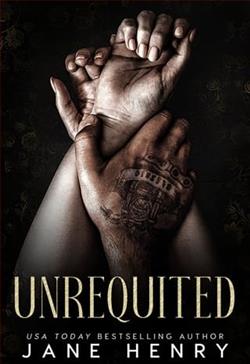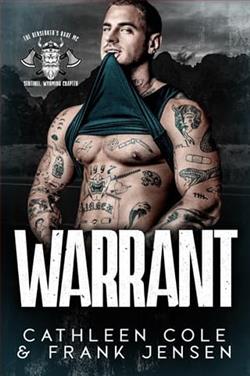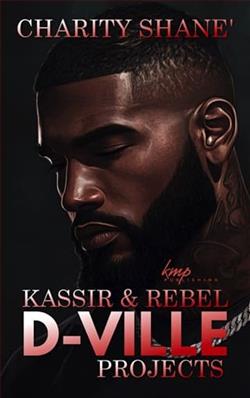Page 25 of Velvet Betrayal
Kieran cracked the door, foot braced behind it. The hallway light glared, and a kid in a black vest and bow tie—mid-twenties, tight curls—stood awkwardly holding a tray with three domed platters and a carafe. His eyes darted, not quite meeting Kieran’s.
“Dinner, sir. From room service?” He tried to sound casual, but his hands shook.
Kieran didn’t blink. “Why are you late?”
“Sorry, sir. Busy night. Elevators are slow. I have your burrata, lobster ravioli, steak frites, and…uh, pancakes?”
The kid was nervous. Made sense. Whenever me or Rosie was in danger, Kieran looked a bit like a wild animal.
“Where’s your partner?” Kieran asked, voice low.
The kid blinked. “They said just me. Is there—?” He trailed off, realizing he’d screwed up the script.
He scanned the room, but it was clear he wasn’t casing the place. Just an underpaid kid who didn’t understand why the air felt so heavy. He set the tray on the table and started laying out the plates. I hovered by the fort, unwilling to move.
Kieran nodded. “Take it over to the desk. Keep the receipt.” He wanted the kid to stay for a minute. To see if there was a click in the hallway, a second set of shoes, a shadow in the threat.
Rosie peeped out. “Do we have orange juice?”
The kid’s voice softened. He squeezed the carton into her hand before he even finished unpacking anything else.
“Say thank you, peanut.”
“Thank you, peanut,” Rosie replied.
I rolled my eyes. The kid laughed. “Can I tell you a secret?” he said. “My name is Brian. My mom calls me peanut, too.”
Rosie giggled, spilling a little juice on the napkin. She grinned at Brian, and for a second, he looked proud.
Kieran tipped him—cash, peeled from a roll in his pocket, crumpled into the kid’s hand with a nod that said don’t ask questions, just get out of here alive.
Brian blinked at the bills, stammered a thank you, nodded at all three of us, and ducked out.
Kieran waited, watching the peephole until the elevator dinged. Then he closed the door, pulled the chain, and gave me a look that said he’d expected trouble, found only dinner, and didn’t trust the luck of it.
We ate in silence, letting Rosie tell Kieran about the birds at the feeder, the snow angels, her need to be on the highest floor of every building in America because the city “looked better if you could see both the tops and the bottoms.” Kieran listened intently, but I kept waiting for him to break the spell, to say something so Kieran it would blow up the table and remind us who we were.
He didn’t. He even cut her pancakes into tiny pieces when she asked. He poured her juice, refilled it, let her drain it dry. If he was faking, it was impressive. The edges were too dull to be a lie.
When she was full and sleepy, I nudged her to bed, tucked her under the comforter, kissed her hair, and read three pages of her book. Through the crack in the bathroom door, I saw Kierantidying up, stowing the knife, checking his phone with a focus that said his mind was still on the world outside.
Once Rosie was out, I turned to Kieran, sipping my seltzer.
“What’s the real plan?” I asked.
He considered me, eyebrows raised. “Didn’t we agree to stop fighting for a day?”
I wasn’t letting it go. “I want to know what you’re not telling me. Why Tristan? Why not just get us out of the state? Why not Vermont, or Mexico?”
“You want me to take you to Mexico? Ruby…this is starting to feel like a honeymoon.”
I glared at him. “Kieran.Talk.”
He toyed with his glass. “You want the truth? Not the spin?”
“Please.”
He leaned in, hands cupped. “Someone paid the Crew for a contract on you. The amount is enough to draw talent from out of state. Maybe out of the country. I’m good, but I can’t keep you alive and move you and keep Rosie from panicking at the same time. Tristan…he runs Boston. He can make you not exist for as long as it takes to shake this off.”















